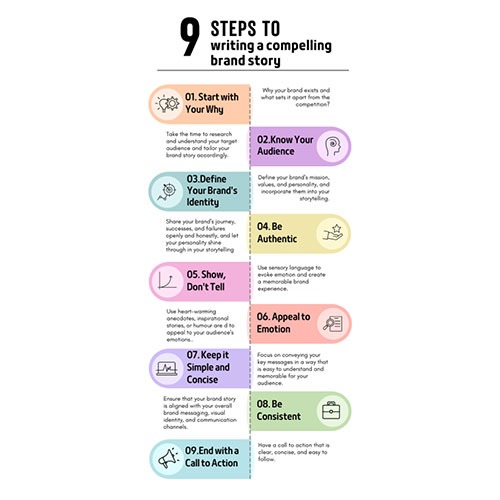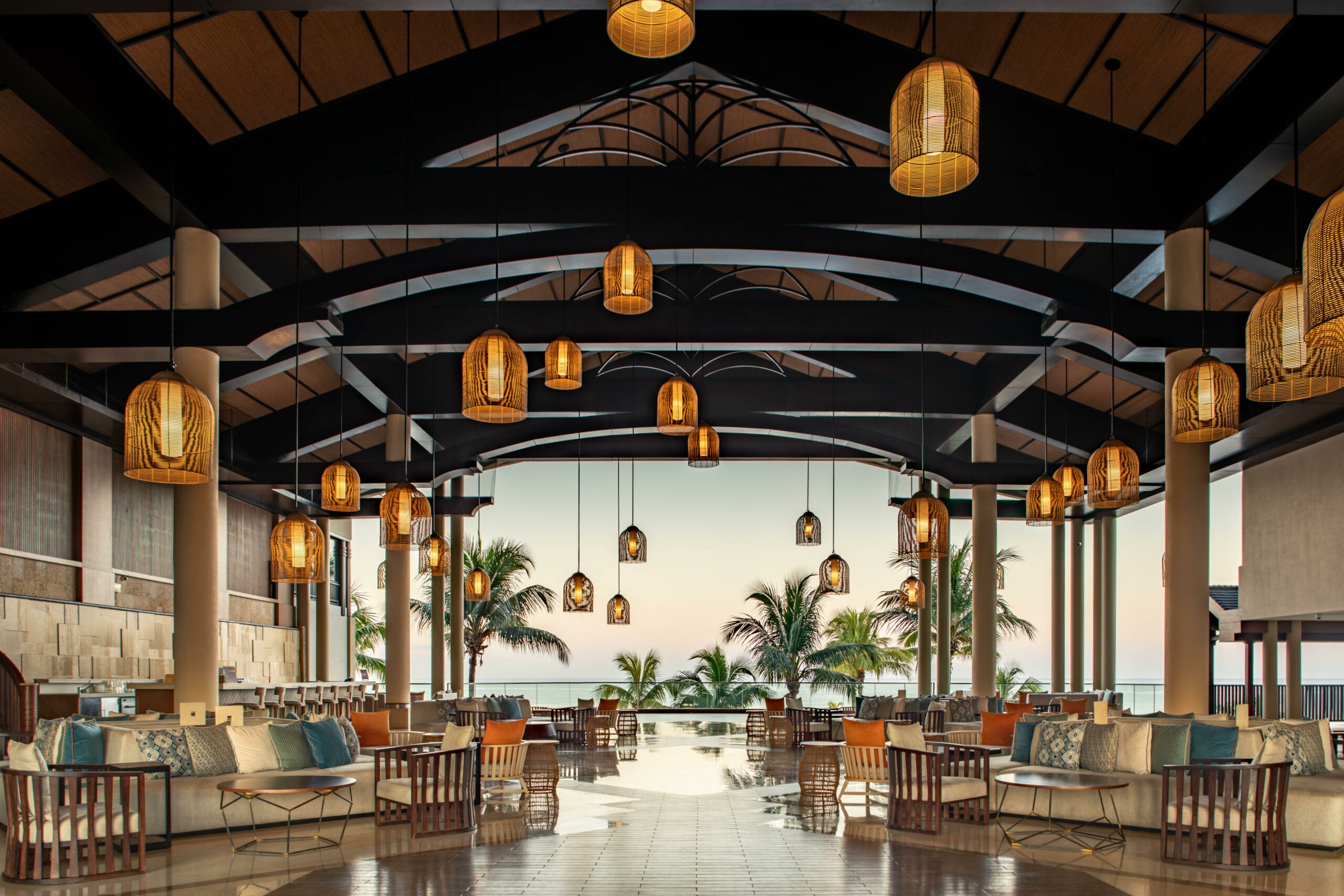SUBANA: A Taste of Nostalgia
By Yashveer Takoordyal and Shakeel Golam
Shakeel is a young and dynamic Marketing Manager and has been in the FMCG sector for the last 10 year. He has experienced the evolution of the modern trade to what it is now. Yashveer, Head of Marketing, has brought back Subana from bankruptcy together with this family business and set up back again the local production. Both Shakeel and Yashveer have endeavoured to bring back the untold history of the Brand SUBANA.
Our History
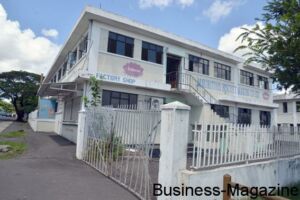 Subana was born at a time when the economic status of Mauritius was very weak. Before Mauritius obtained its independence, the economy was mainly dependent on the production of sugar under the rule of the British. Food was scarce, the island was underdeveloped, and an industrial environment was non-existent. It all started when the Economic Development Board of Mauritius set up the Export Processing Zone and the Industrial Zone (in early 1970s). Places like Coromandel, Plaine Lauzun, Bell Village were earmarked as industrial zones in Mauritius and this was the time when Subana was created. The construction of the factory started in 1969 and the Subana brand was established in 1970 with the objective of offering the local market with a locally made product at a competitive price. Based in Bell Village, Subana was among the first alternatives to imported biscuits. Its creation was a bold move that encompassed Mauritians’ ambitions to be independent.
Subana was born at a time when the economic status of Mauritius was very weak. Before Mauritius obtained its independence, the economy was mainly dependent on the production of sugar under the rule of the British. Food was scarce, the island was underdeveloped, and an industrial environment was non-existent. It all started when the Economic Development Board of Mauritius set up the Export Processing Zone and the Industrial Zone (in early 1970s). Places like Coromandel, Plaine Lauzun, Bell Village were earmarked as industrial zones in Mauritius and this was the time when Subana was created. The construction of the factory started in 1969 and the Subana brand was established in 1970 with the objective of offering the local market with a locally made product at a competitive price. Based in Bell Village, Subana was among the first alternatives to imported biscuits. Its creation was a bold move that encompassed Mauritians’ ambitions to be independent.
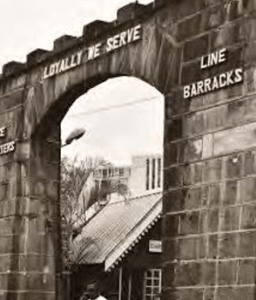 Sir Seewoosagur Ramgoolam himself handed the certificate of development to the Sukai, Baichoo and Nandlall families, the then owners of Subana. As a matter of fact, the name ‘Subana’, that has become such a well-known Mauritian brand, is derived from the first syllable of the names of the 3 families that started it, ‘SU-BA-NA’,. All developments started at the Line Barracks Port-Louis as the Bell-Village region had yet to be developed.
Sir Seewoosagur Ramgoolam himself handed the certificate of development to the Sukai, Baichoo and Nandlall families, the then owners of Subana. As a matter of fact, the name ‘Subana’, that has become such a well-known Mauritian brand, is derived from the first syllable of the names of the 3 families that started it, ‘SU-BA-NA’,. All developments started at the Line Barracks Port-Louis as the Bell-Village region had yet to be developed.
One of the founders of Subana, the late Mr. Sukai travelled to England to advertise a job for the company’s soon to be pastry chef. Recruiting the pastry chef was a tough job, but Mr. Sukai was driven to find the perfect one. He also ordered the necessary equipments while in England, then headed back to Mauritius to develop the famous Morning Tea, Petit Beurre and the legendary Biscuit Marie.
By the time the construction of the factory neared completion, the three families had a major lack of funds. They sought help from the Reetoo family for the remaining fund and made them a shareholder in the company. Though the family wished to change the name of the company to ‘Subareena’ they were unable to do so as the name Subana was already registered.
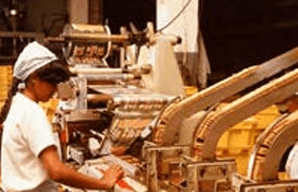 Once the factory was completed and the pastry chef had been recruited, the first biscuits were made in August 1971 with a Baker Perkins machine from England while the marketing began in early November 1971 with a modest production capacity of only 1 ton a day. With the gradual automation and acquisition of machines from the UK, Italy and Austria, a daily production of more than 15 tons of different varieties of biscuits was possible.
Once the factory was completed and the pastry chef had been recruited, the first biscuits were made in August 1971 with a Baker Perkins machine from England while the marketing began in early November 1971 with a modest production capacity of only 1 ton a day. With the gradual automation and acquisition of machines from the UK, Italy and Austria, a daily production of more than 15 tons of different varieties of biscuits was possible.
The first products were Marie, Kris, Cream Crackers, Morning Tea and Petit Beurre. In 1982, with increasing demand, an automatic wafer manufacturing machine was put in place. A second factory was then built in Pailles. Subana became a household favourite.
In 1995 with Mauritius joining the World Trade Organisation (WTO) and the reduction of trade barriers, local production started to feel heavy pressure from imported goods. It was not long, when in 1997, due to competitiveness Subana was forced to outsource part of their productions to India.
Years passed, and despite several measures, the financial situation of Subana could not recover back to what is was and by 2012, had to declare bankruptcy.
The New Era
However, this did not mark the end for Subana. In 2014, Freelance Distributors, owned by the Takoordyal family, bought the brand and the factories with the goal of boosting local products once again. The brand, the compound and the manufacturing unit were acquired, but without the equipment, the Takoordyal family would have to start from scratch.
Freelance Distributors was established in 2002 by Mr. Anouj Takoordyal. His story began at the early age of just 17 years old. He left his education and went to work for the Subana company as a delivery driver. His salary was a meagre Rs 2.40 for a whole day’s work. But through hard work, he was promoted as a salesman and pursued his career in various other leading organisations, until he founded his own marketing and distribution company.
Upon acquiring Subana, Freelance Distributors had to act smart and fast to avoid losing time and market share of Subana. Therefore, products like Marie, Kris, Cream Crackers, Morning Tea and Petit Beurre had to be outsourced from India. It took 3 years to set up the factory, develop a strategic plan and train staff to revive the Subana brand. Finally, in 2017, production started with 3 varieties of biscuits: Biscuit Champagne, Almond Cookies and Le P’tit Morisien. Each biscuit was carefully selected for the Mauritian population. Biscuit Champagne – because it is unique to the culture of Mauritius. P’tit Morisien – trendy to the younger generation in a practical packaging, with an attention to health. Almond Cookies – reworked in a modern format with a unique flavour.
In the new era, the logo of Subana has been redesigned and three main aspects have been put forward to reinforce the brand: the History of Mauritius, the authenticity of the product and the health attributes from consuming the product.
Our Local Biscuits
Biscuit Champagne has always been very highly connected to the Mauritian people. Being soft, buttery and crispy, it was and still is one of the people’s favourites.
Almond Cookies was newly designed due to its flavour’s rareness. It simply melts in the mouth with natural almond being crushed and mixed with the paste.
Le P’tit Morisien is available in 4 flavours in a triple layered packaging. It is made partly from natural ingredients like coconut, cacao and almond.
Give Me More is a much-appreciated scotch bread and is also now available in 2 flavours: the original and the new one with chocolate chips, both without eggs.
Imported Products
Freelance Distributors also offers other Subana products that are not produced locally. The biscuits Morning Tea, Petit Beurre, Marie, Kris, Duchess, Jax and Lemon Cream are made in India and the new Cream Crackers and Special Crackers are produced in Malaysia. The imports were important to kickstart the sales of the newly branded Subana biscuits in an increasingly competitive market.
Our Shop
The Subana shop was built in 1970 to offer the complete range of Subana products. In 2017, together with the launching of local biscuits, it reopened its doors to proudly offer the same service as it had for decades. The new products that Freelance Distributors offers, not limited to their biscuits range, are also available in the shop. It is a very efficient way to get direct feedback from our customers.
Label – Made In Moris
In February 2021, our whole structure was evaluated by the SGS and Made In Moris label. We are proud to say that we now form part of the Made In Moris family. Today, following the health crises, we are trusted by many local households to keep producing locally made biscuits and keep our economic model running. “Ena nou lame ladan!”
Social responsibility
From locally sourced ingredients to local female workers, Subana has always been very supportive. Subana regularly participates in many activities such as donations to social workers, elderly people as well orphaned children.
As a Mauritian brand, Subana must always be close to its people. For example, during the Wakashio oil spill and environmental disaster, Subana offered its support to the volunteers.
50th Year old Brand
Subana’s motto is “Touzour Avek Ou” (Always With You). Making people trust the brand and giving the consumers quality is the aim. And of course, growth and development of the company is very important. These qualities ensure that they meet the consumer’s expectation and give them the best products. Subana’s objective is to revive the brand; like people always used to say “Subana, ca biscuit nou lenfance!” (‘Subana, it’s our childhood biscuit).
Subana’s goal for the next five years is to be among the top 10 Mauritian companies to be recognised at the international level. Subana wants to become an essential brand for Mauritians and together with that, steer the company towards a turnover of Rs100 million.






